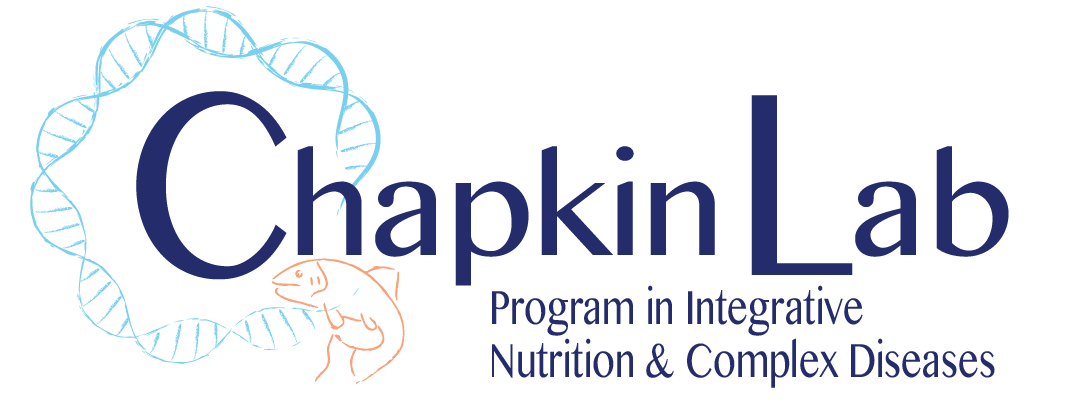Long-Chain n-3 Fatty Acids Attenuate Oncogenic KRas-Driven Proliferation by Altering Plasma Membrane Nanoscale Proteolipid Composition
Natividad R. Fuentes1,2, Mohamed Mlih3, Rola Barhoumi4, Yang-Yi Fan1, Paul Hardin5, Trevor J. Steele6, Spencer Behmer6, Ian A. Prior7,
Jason Karpac3, and Robert S. Chapkin1,8
Ras signaling originates from transient nanoscale compartmentalized regions of the plasma membrane composed of specific proteins and lipids. The highly specific lipid composition of these nanodomains, termed nanoclusters, facilitates effector recruitment and therefore influences signal transduction. This suggests that Ras nanocluster proteolipid composition could represent a novel target for future chemoprevention interventions. Read More….
